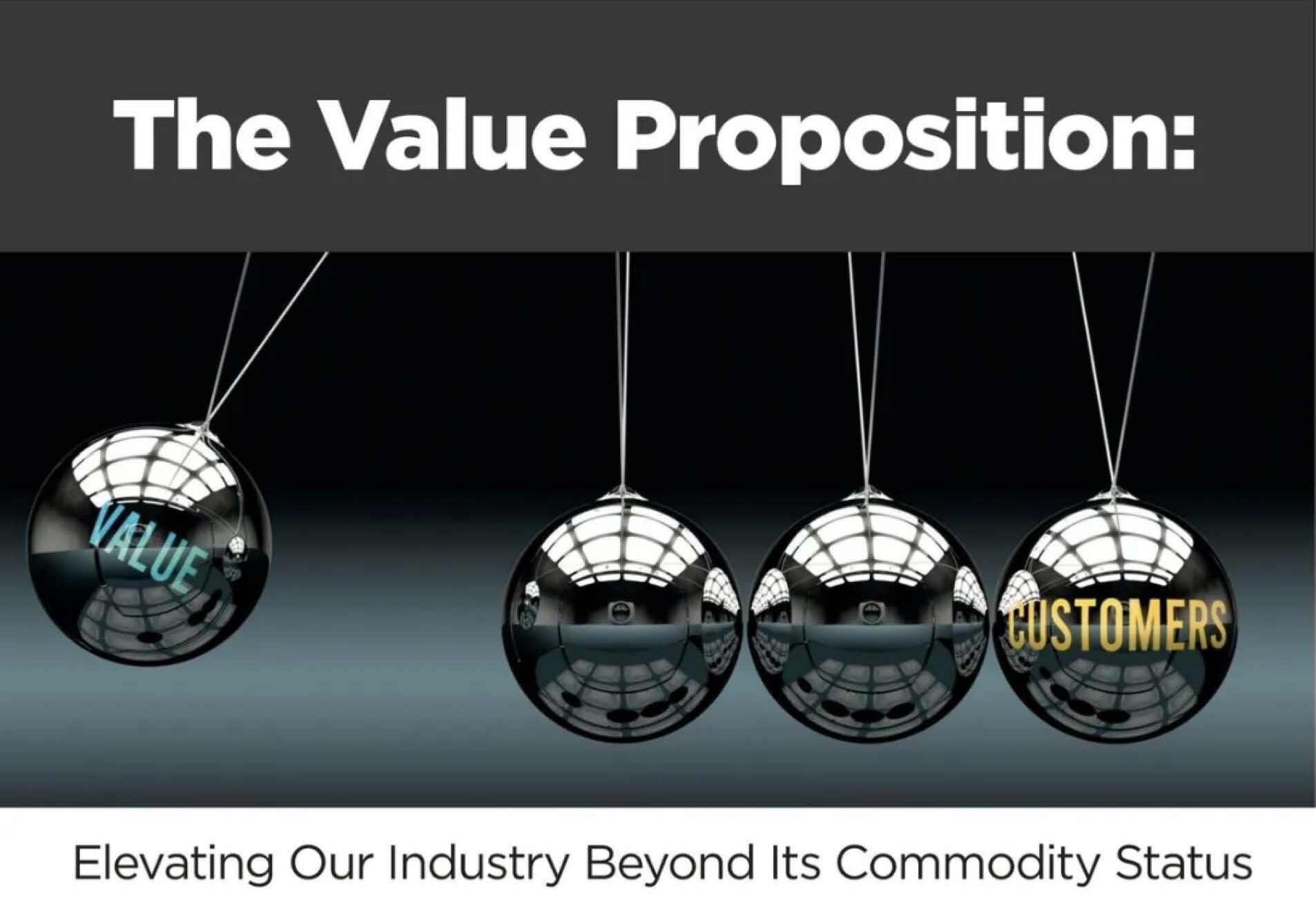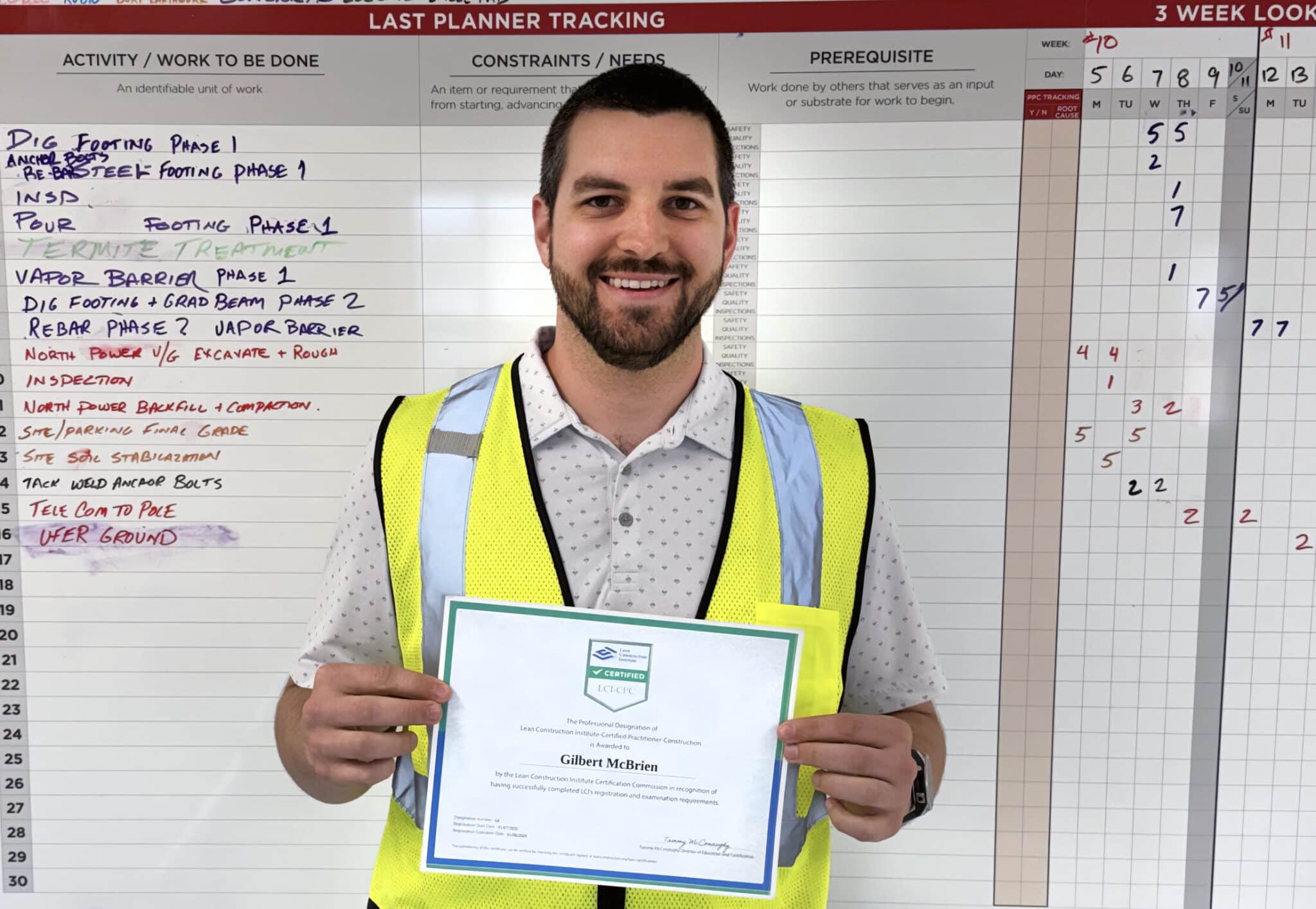The construction industry’s competitive landscape forces us into price wars to win projects. We have grown accustomed to perpetuating a self-defeating cycle, where we willingly reduce our fee until there’s hardly anything left:
A competitor’s fee is 3%? Tell the client we’ll do it for 2.5%!
They’re down to 2.5%? OK, we’ll do it for 2%!
This cycle is destructive for us—as individual businesses and as a collective industry—for several reasons, including:
- We need to be profitable to sustain and grow our operations. After all, profits allow us to reinvest in our technologies and equipment and the development of our people. These investments improve the quality of our services, helping us to meet and exceed our clients’ expectations. Without them, we are hamstrung and impeded from making the improvements that benefit our business and our clients’ projects.
- Constantly reducing our fees signals that we don’t value our services, as we’re continually willing to accept less money for them. It’s crucial that we maintain pricing that accurately reflects the true value of our services. The adage “you get what you pay for” is meaningless when we push to offer the same quality of service for a precipitously lower price. We are undermining our value and diminishing our reputation—if we don’t believe our work is worth much, why should anyone else?
- Competing solely on fee implies that every construction firm is virtually identical, where our only (or most important) differentiator is our price tag. This approach overlooks the unique value we bring through the quality of our work, expertise, and innovation. Focusing on fees ignores the distinct strengths and competitive advantages that set us apart, ultimately diminishing the perceived value of our services and our industry’s overall standards.
- Projects awarded based on the lowest bid often face quality issues, delays, and cost overruns. This approach also undermines the potential for innovation and excellence. It creates a landscape where the cheapest option is favored over the best solution, leading to a cycle of mediocrity and dissatisfaction.
This is why the construction industry suffers when we compete solely on price. Commoditization diminishes the unique strengths and expertise that each firm brings to a project. It reduces complex, skill-intensive work to a mere number—stripping away the value of our craftsmanship, strategic planning, and innovative problem-solving. It starves us of the profits we need to continuously improve and advance our services, companies, and industry. We are already facing challenges such as labor shortages and tightening regulations, so where will this race to the bottom take us? It is unsustainable.
Emphasizing Value-Driven Approaches
To counteract commoditization, we need to emphasize value-driven approaches. Here are four key strategies to consider:
- Adopt Lean Construction Practices: Lean Construction is about more than reducing waste—it’s about fostering a culture of continuous improvement and respect for all project stakeholders. By implementing Lean principles, firms can enhance efficiency, improve collaboration, and deliver higher-quality projects. Lean Construction encourages us to think critically about our processes and seek ways to add value at every project stage.
- Leverage Technology: Integrating advanced technologies can significantly enhance project outcomes. Tools like Building Information Modeling (BIM), drones, and safety management apps provide better oversight, improve accuracy, and streamline operations. These innovations increase efficiency and elevate the quality of the work we deliver, offering clients significant benefits that reach far beyond cost savings.
- Focus on Client Relationships: Building strong, long-term relationships with our clients is critical. This means understanding their needs, anticipating challenges, and delivering solutions that exceed their expectations. Value-driven firms prioritize client satisfaction and project success over merely winning the next contract. This client-centric approach builds trust and leads to repeat business and positive referrals.
- Invest in Workforce Development: The skills and well-being of our workforce are foundational to adding value. Investing in training, ensuring safe working conditions, and promoting a healthy work-life balance are essential. A well-supported workforce is more productive, innovative, and committed to delivering high-quality work.
Adding value provides a competitive edge that far outweighs the short-term gains of low-bid contracts. Firms known for quality, innovation, and client satisfaction secure repeat business and earn a reputation for excellence. Setting higher standards and fostering a culture of excellence benefits individual companies AND elevates the entire industry.
Our future relies on our ability to innovate, collaborate, and continuously improve. By committing to adding value with every project, we enhance our success and contribute to a more robust, resilient, and respected industry. The legitimate measure of success in construction is in the quality of the work we deliver and the lasting impact that it creates. Let’s build a future where value leads the way.
This article was written for Constructor Magazine’s Sep/Oct 2024 issue; you can read it here:
https://constructorseptoct24.mydigitalpublication.com/publication/?m=69328&i=829799&p=24&ver=html5



